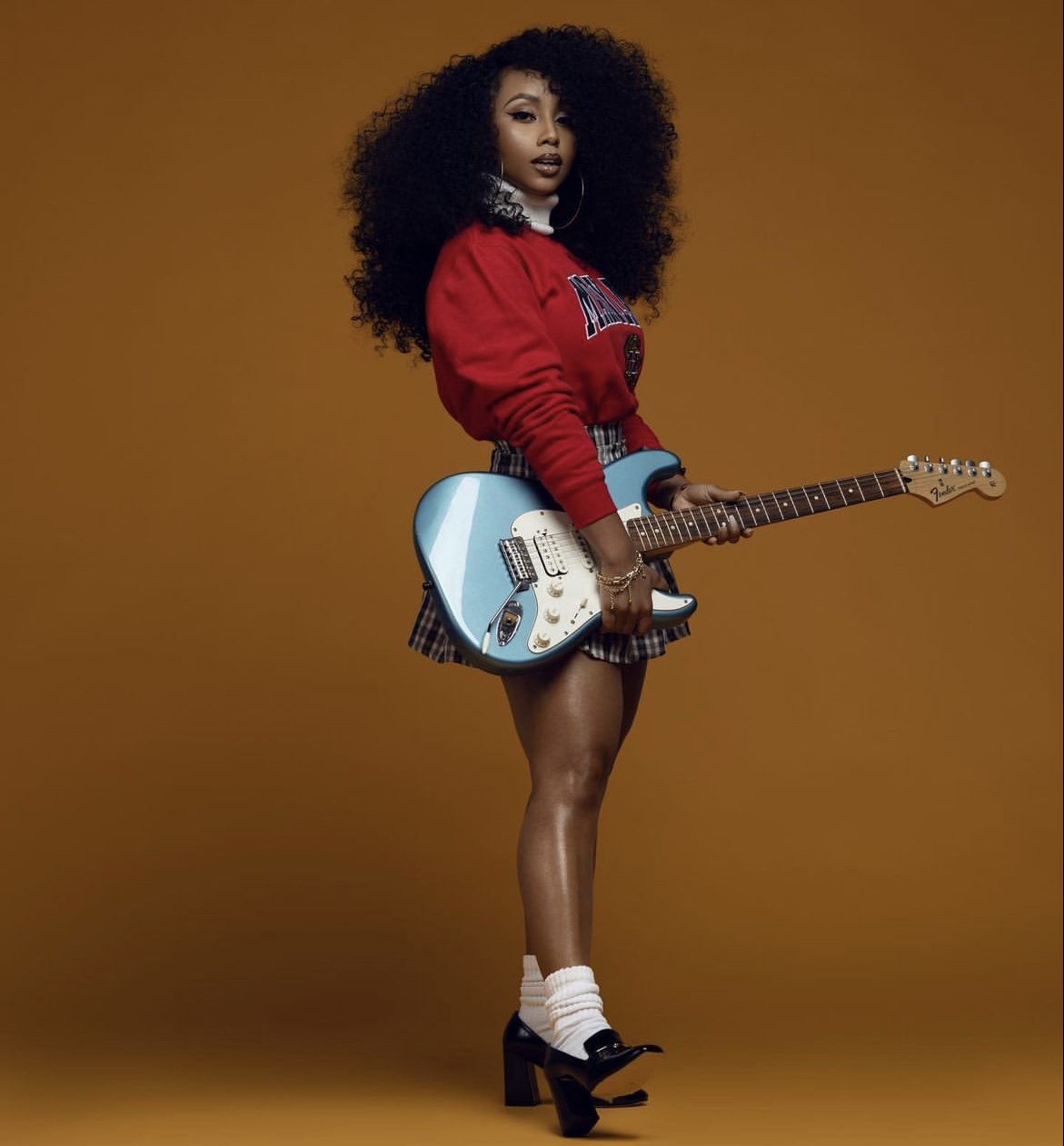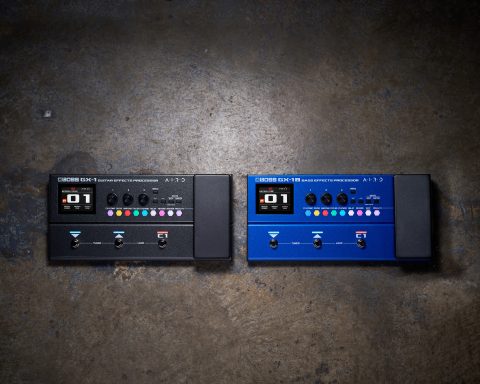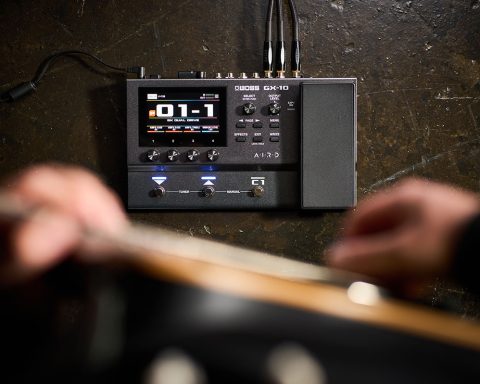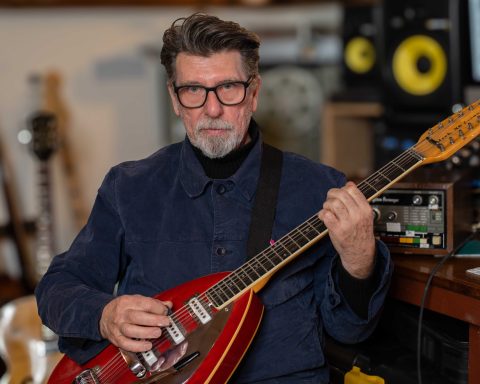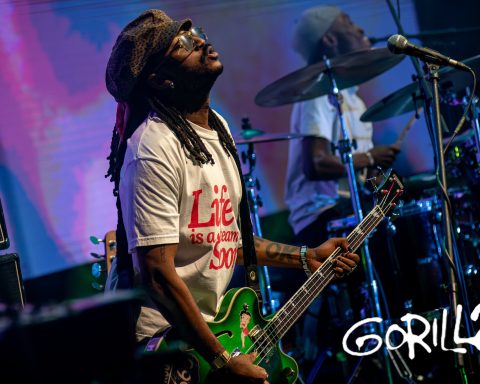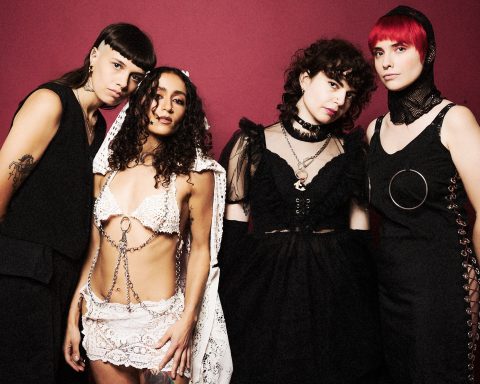When it comes to a discovery tale, they don’t come much more dramatic than that of Ari O’Neal. The Maryland guitarist got plucked from Instagram to play with Beyoncé for her landmark 2018 Coachella show. From that point on, O’Neal has been on a musical adventure, accompanying the likes of Lizzo, Alicia Keyes, and SZA—with whom she is currently on tour. A stellar ensemble player with a fluid lead style, O’Neal gives details about her origin story, influences, and BOSS pedal faves.
Beginnings
You grew up in Maryland. What makes the region so musically unique?
I was born in Takoma Park but raised in PG County—Clinton Temple Hills, right next to D.C. We have a lot of talented musicians in that area. Everybody knows Aaron Spears and Mike Reid in Baltimore. It’s easy to get into it because live music is such a big thing in the DMV (D.C., Maryland, Virginia). You’re always going to find it.
Did any particular sounds shape you as a young person?
We grew up with our grandparents, but my mom, dad, aunts, uncles—everybody loved music. My grandmother liked classical music, so we would listen to orchestras and stuff like that. My grandfather loved James Brown, and my mom liked Stevie Wonder, that kind of thing. We got caught up in the feel-good music with our family.
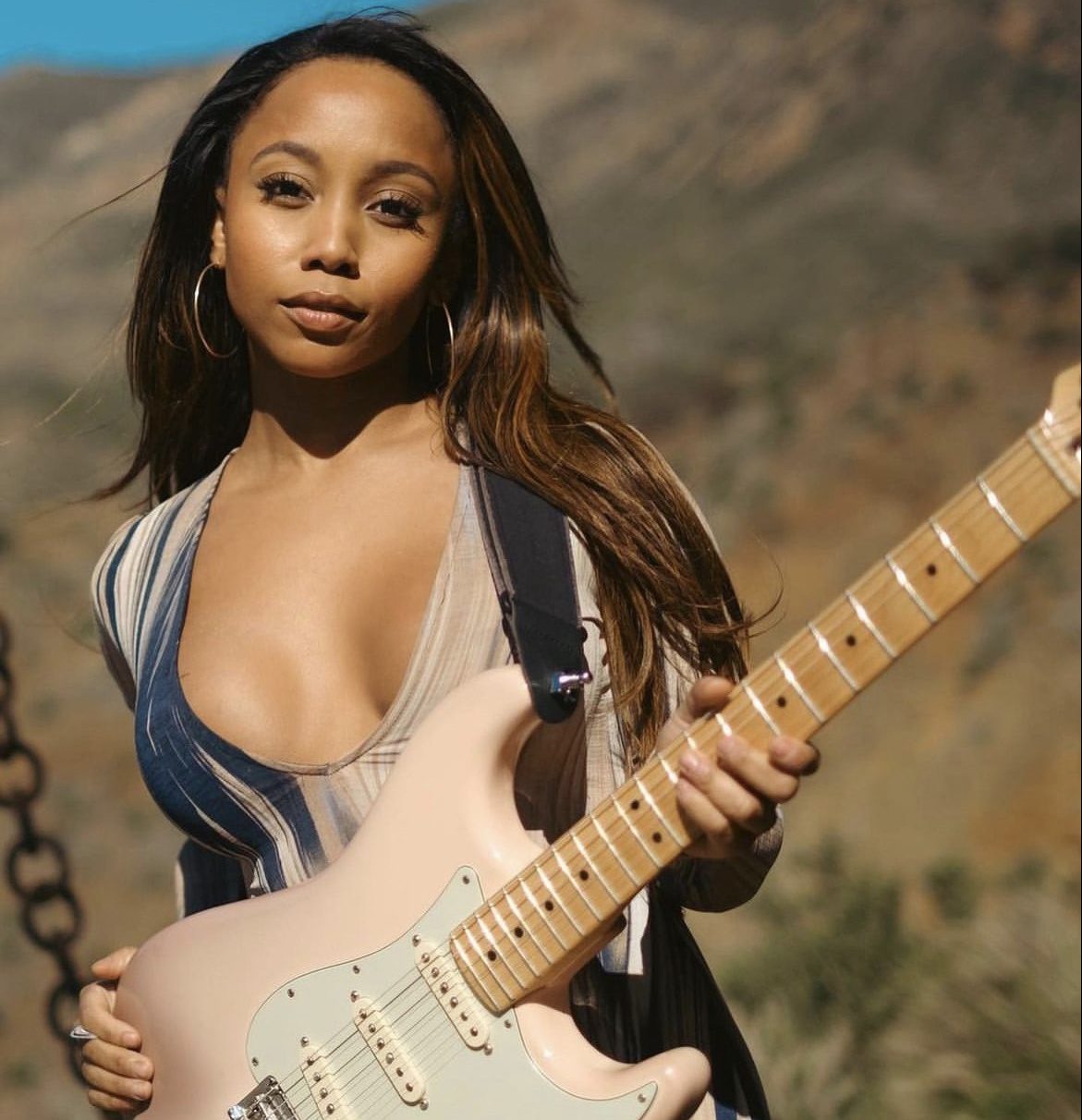
Discovered
You got scouted on Instagram to play with Beyoncé at Coachella. When you got the call, could you believe it was real?
I thought it was fake. At that point, I worked five jobs: front desk at a music school, playing at church, playing in an agency band, playing in We The Fix, and teaching on the side. I thought that would be my life, and I was cool with that; I hadn’t been on any auditions.
At the time, I was trying to be more professional, so I had my sister answer my emails and messages. She was like, “Somebody from Parkwood wants you to audition.” I looked it up and saw that it was Beyoncé’s company, so I did some videos. They called me on my birthday and said, “Can you fly out tomorrow for rehearsal?” It wasn’t until the second day that I realized it was for Coachella.
"They called me on my birthday and said, 'Can you fly out tomorrow for rehearsal?' It wasn't until the second day that I realized it was for Coachella."
Thinking back on it now, I was really scared. Even when I left, I was still in contact with my job. There’s this stigma that you don’t have money if you’re a musician, and I didn’t want to be financially unstable. I talked to Aaron Spears when I decided to quit my job. I was crying, and he told me everything would be fine.
Since then, you’ve played with many other names, from Lizzo to your current gig with SZA. What are some lessons you’ve learned from them?
Everybody’s team and vibe are so different, and I’ve taken a piece from each person. 95% of the artists I work with are super-duper nice and cool, so you can learn a lot. Everybody has their own thing you can take away.
With SZA, it’s been a transition from doing clubs and lounges to arenas. Before, it felt more like a jam, and now because of the places we’re in now, it’s about parts and making it big. There are a lot of different pieces with SZA, especially the new album, which has so many different vibes. There’s acoustic stuff and even some songs with a U2 feel.
BOSS Faves
You are a fan of the GT-1000, calling it “an all-in-one kind of pedal.” What role do BOSS pedals play in your sound?
I’ve used the GT-1000 a lot for live shows: the Fantasia tour, the Normani tour, the first tour and TV we did with Lizzo. Recently, I’ve started getting more into using it for recording. I did a few specials for a young group on America’s Got Talent that needed some guitar for their live arrangements. Usually, I would go through a DAW and use whatever’s in there. Then I tried the GT-1000, and it sounded so good.
With SZA, I was having some issues with my expression pedals. I saw that some of my friends were using BOSS expression pedals, so I said, “Let me try that out.” Literally, they work like a dream. I’m not going back.
"I've used the GT-1000 a lot for live shows with Fantasia, Normani, and Lizzo. Recently, I've started getting more into using it
for recording."
The Power of Practice
You have a great pocket to your rhythm playing and a smooth lead style. What do you focus on in practice sessions?
I practice and watch videos of my influences, like Jubu Smith and Agape Jerry. But I started returning to my old teacher Christopher Brown and taking lessons again. Right now, we’re working on cleanliness, and what to do to complement the people you’re playing with. Sometimes I have the tendency to be in my guitar world and what I’m doing with my tones and stuff. The best musicians make other musicians sound good. So right now, we’re working on that.
What would you tell beginning guitarists that you wish you had heard?
Stay in your lane and focus on what you’ve got going on. A lot of times, we look at other people and start comparing ourselves to their technique and style. But everybody has their own approach to music. It’s not about who’s good and who’s bad. It’s about your style. If you don’t like something, you can improve on that. Don’t worry about what everybody else has going on. This is about you and your journey.
"Don't worry about what everybody else has going on. This is about you and your journey."
What does the future hold for you?
I’ve started an all-girl band with my homegirls from the Lizzo band called LA’DY. As musicians, we’re always supporting somebody else. Now it’s like, “Yo, this is us. This is our stuff.” We’re writing, and the music is awesome.
